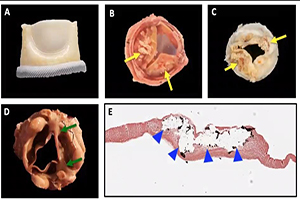Transcatheter solutions for transcatheter aortic valve replacement dysfunction: is redo transcatheter aortic valve replacement a durable option?
Abstract
As transcatheter aortic valve replacement (TAVR) expands into a younger and lower risk cohort of patients, many important clinical questions are raised, including the one of overall valve durability. Bioprosthetic valve dysfunction (BVD) is a complex clinical issue, of which structural valve deterioration (SVD) is a subcategory. Similar to surgical bioprosthesis, transcatheter heart valves (THVs) can fail over the years however, data on long-term THVs durability is lacking, especially in the lower risk cohort. Surgical explant with open aortic surgery or a second THV, described as redo-TAVR, are feasible options when the first THV fails. However long-term data in these patients is even more limited. Important clinical considerations such as the mechanism(s) of THV dysfunction, the type and timing of the second procedure must be carefully considered. There are also inherently important clinical concerns regarding redo-TAVR, such as coronary access and higher post procedure gradients. In the present keynote lecture, we review the diagnosis of THV dysfunction and transcatheter options available when SVD occurs.
Cover






